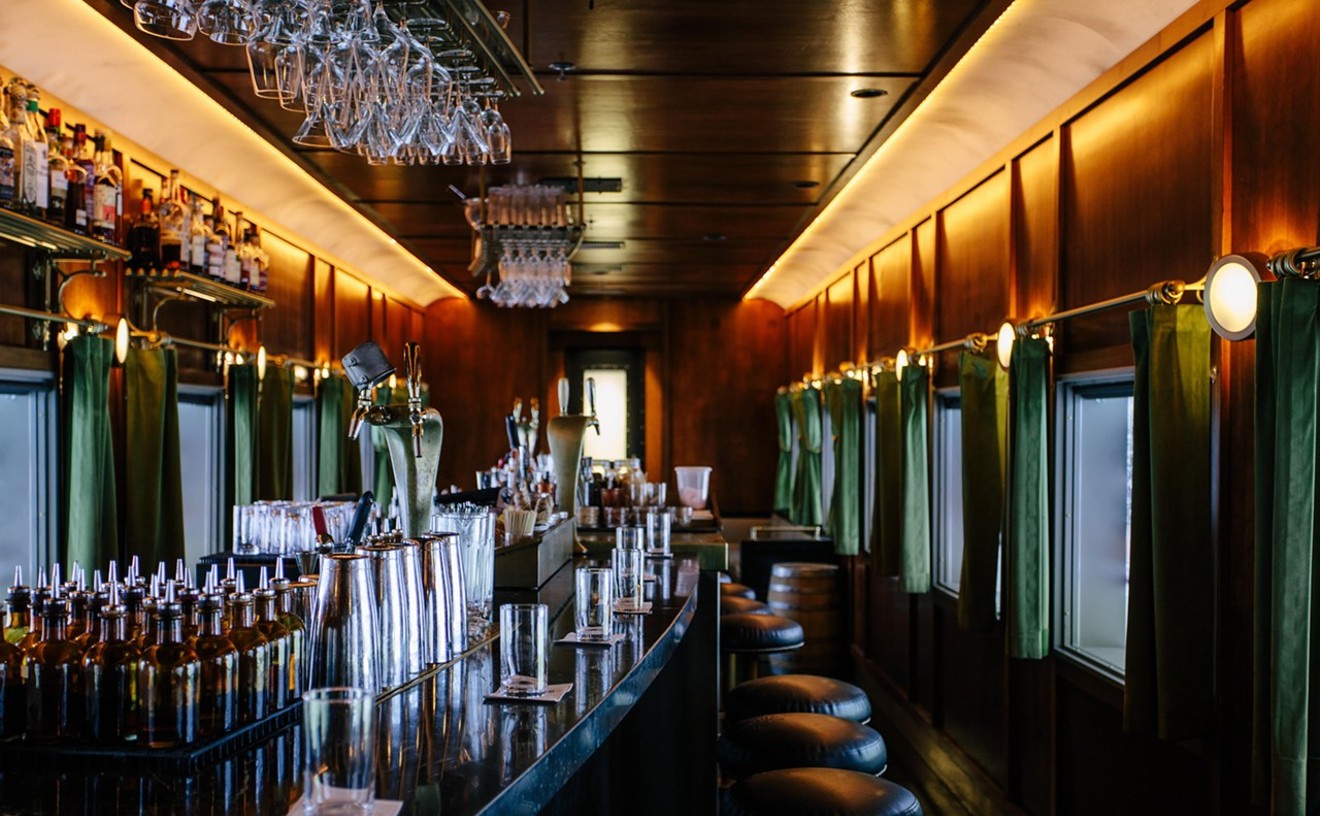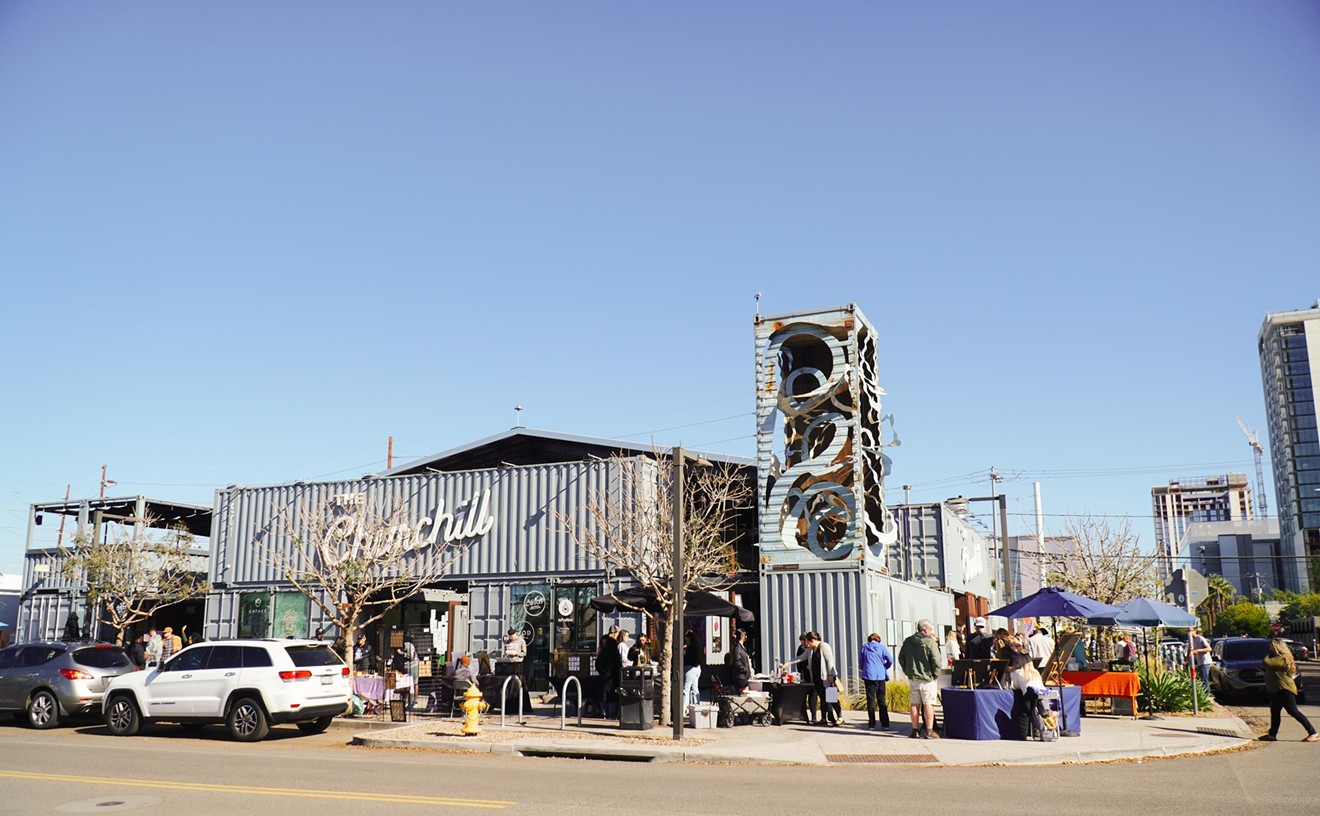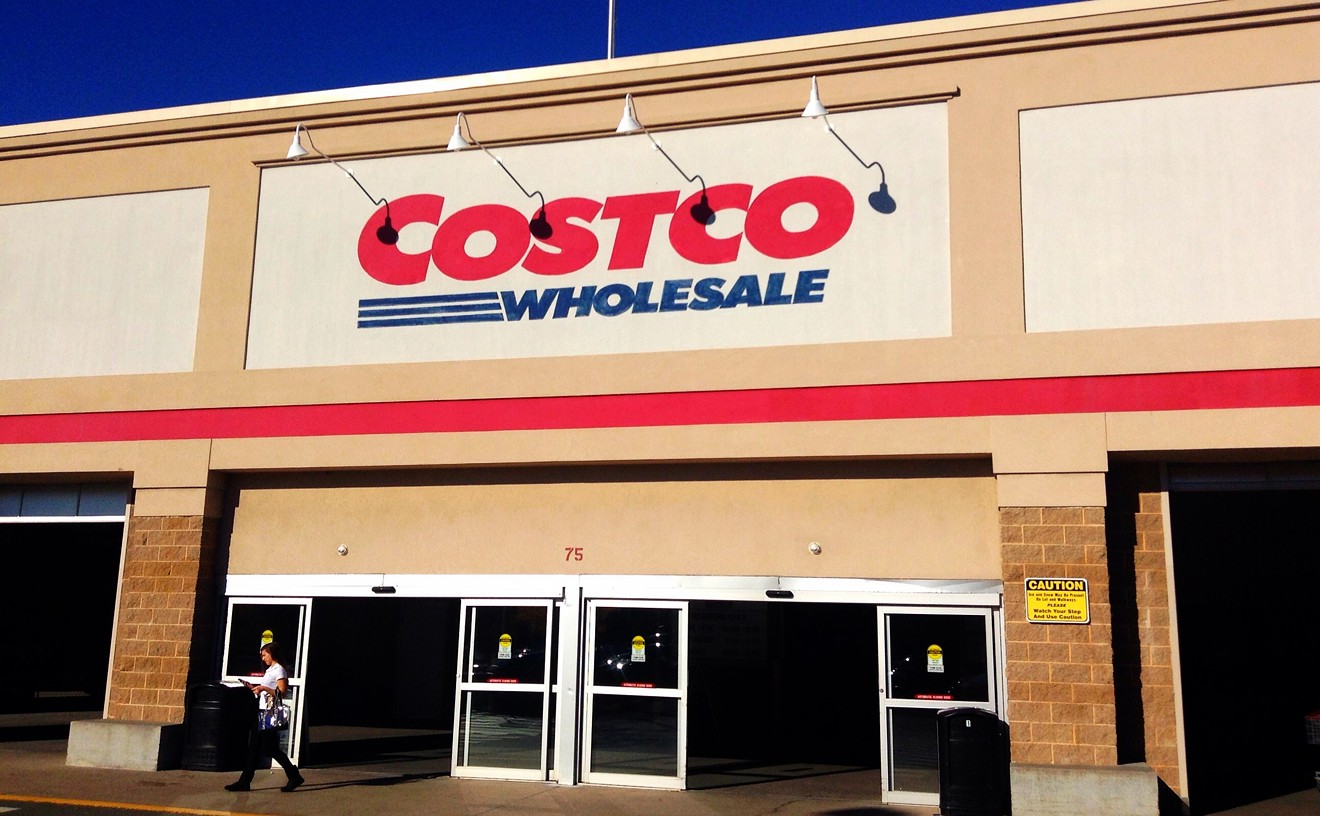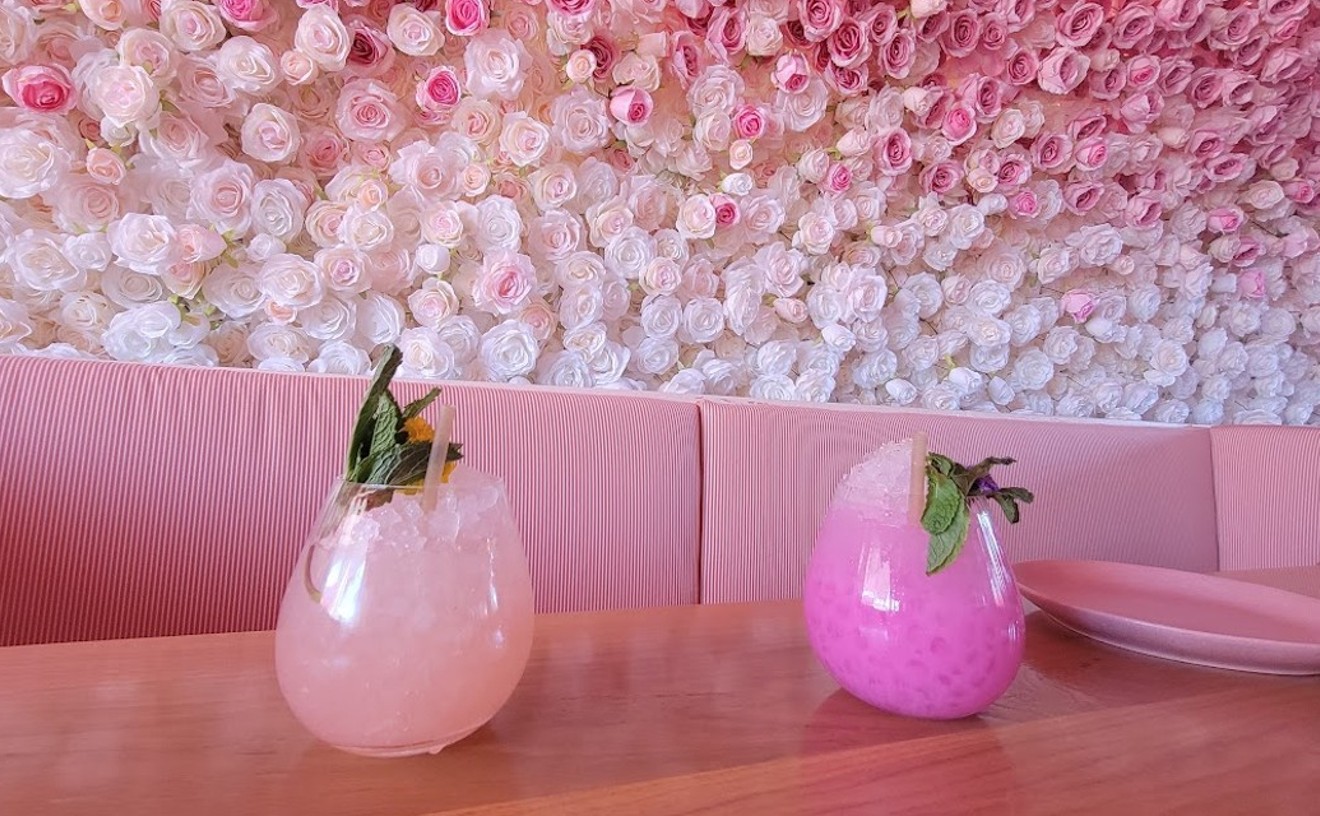You can find Infusion Coffee and Tea in an unassuming retail space on Eighth Street in Tempe, just a few suites down from Four Peaks Brewing. The front-of-house looks like a restaurant showroom; the space is hip and clean with wood walls and metal furniture, a standard café setting.
But don't let the typical cafe appearance fool you: the true draw at Infusion is the expert-level appreciation for serving the perfect beans, optimally roasted.
Though you might not know from the humble appearance, Infusion is the only Specialty Coffee Association of Europe-authorized training center in North America, according to owner Patrick O’Malley. An though the retail cafe has only been open since April, O'Malley and Infusion barista trainer Nick Rozental have been working in specialty coffee for years.
In the cafe Infusion serves 14 single-origin coffees soured mostly by O’Malley and Rozental. The duo also has a few suppliers and travels a lot to seek out new coffee, Rozental says.
“If we find specific notes that we like, and zero defects, then we will buy it and start offering it to customers,” he says.
“The new baby that we just received is this one,” Rozental says, pointing to a large bag on a shelf with a label from Colombia. This bag of beans has received Colombia’s Cup of Excellence designation (an international standard for the highest quality bean). It’s not a competition, Rozental explains, but a grading process. “For this coffee, I think they had 25 different tasters who came in from all over the world to Colombia. They go through different sessions of cupping,” he says. The tasters narrow down the top 10 to the top five, and then find the finest among that set — hence, the Cup of Excellence.
Infusion's owner, O’Malley, was one of the tasters who graded the Colombian beans. “We managed to get five bags of 25 kilos [around 55 pounds], and that’s all we have. So, it’s kind of a very special coffee for us,” Rozental says.
A large, lime green Öztürkbay roasting machine occupies a large corner of the shop. Rozental says the company roasts about five and a half pounds of their premium green coffee beans at a time. This takes eight to 15 minutes per batch to roast, and the process is slow and precise. Every 30 seconds the roaster will pull a small sample from the batch and check its darkness and aroma. When the bean reaches perfection the roasting is done. The biggest challenge, Rozental says, is staying consistent for all of the beans from the same order.
In the backstage laboratory, Rozental and O’Malley train baristas to identify and select perfect green coffee beans, how to taste notes and aromas, and how to brew coffee using different machines and drip processes. They also teach regular people how to select and brew quality coffees at home.
“Coffee is the second most-traded commodity after oil,” Rozental says. Hence, the international standard for quality.
If the beans are ideal, it's time to proceed to roasting. Beans that are very dark yield “a lot of astringency and negative flavors,” Rozental says. He cringes when people say they want a “strong, dark, bitter.” These aren’t exactly the best terms for describing coffee, he says; he prefers adjectives with a positive connotation: Bold. Good mouth-feel.
He uses a metaphor of cooking a fine cut of meat and using sauce. If it’s a lesser quality meat, then, sure, pour on the A1 Steak Sauce. But if it’s a cut of Kobe beef, expertly cooked, there is no need for sauce. According to Rozental, it’s the same for coffee.
"If you add too much of one thing, it becomes negative,” he says. “The culture here I think has been a lot of sugars, a lot syrups—a lot of add-ons to coffee to counterbalance the difference.”
Rozental and O’Malley have trained students from Canada, China, Korea, Italy, Scotland, the U.K., Singapore and other countries around the world for different SCAE certifications. This year, O’Malley won the SCAE Trainer of the Year Award at the World of Coffee exhibition and convention in Gatlinburg, Sweden. O’Malley, originally from Bisbee, has been in the coffee business for 30 years. Rozental is from Paris, but he has lived in Brazil, Kenya, Bali and New York City. The two met at a training event in South France and formed a friendship. And when O’Malley asked Rozental to help him out with his retail venture, Rozental wrapped up his business in New York City and moved to Tempe.
For regular hours and more information about Infusion Coffee, visit the Infusion website.










